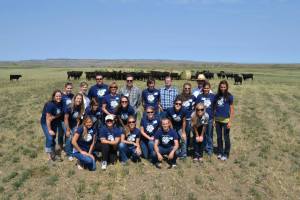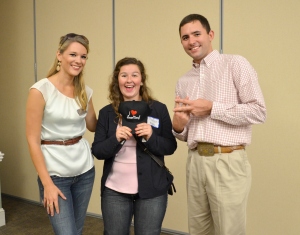 Lisa Murray RD, Montana Beef Council
Lisa Murray RD, Montana Beef Council
Meeting a beef producer, stepping into his pastures and touring the ranch, isn’t the everyday norm for the dietetic intern students at Montana State University. Yet for these soon to be Registered Dietitians (RD) and nutrition experts, recently they followed the “life of a steak” at the Stovall Ranch in Billings.
Most of today’s consumers are several generations removed from rural America and two-thirds of consumers do not know a farmer or rancher. This disconnect results in a lack of understanding and in some cases an acceptance of misinformation, about food production and agricultural practices. More and more consumers are asking “Where does my food come from?”
For the 20 MSU dietetic interns, the ranch became the classroom during a “pasture to plate” tour of Montana’s beef chain. A majority of the interns had never been on a farm or ranch before, but were very eager to learn more about the beef industry and how cattle are raised.
While at the Stovall ranch, the students heard from ranch owner, Turk Stovall, about the lifecycle of cattle and how their operation works. Some of the topics Turk discussed and showed the students were cattle nutrition, taking care of a sick animal, the importance of record keeping, artificial insemination, calving, cattle breeds, water, pasture rotation, and haying.
“I will never complain about how much work I have to do or how tired I am,” stated one of the students during a point in the tour when Turk mentioned that he had been up since 2:30 a.m. to bale hay.
The tour connected the dots of the beef value chain from farm to plate. The students learned about farming and ranching practices, sustainability, food safety and nutrition from Turk Stovall, Jude Capper PhD – Beef Sustainability Consultant and myself. The students also engaged in professional development with Daren Williams, Executive Director of Communication for NCBA, who focused on tips and techniques for a successful media interview.
After the tour, 100% of the students stated their knowledge of beef nutrition and how to incorporate beef into all types of diets was increased and 75% of the students stated the tour increased their knowledge of how cattle are raised. “Ranchers are great, honest and hardworking people, I always thought that but to see it was amazing” said one of the dietetic students.






